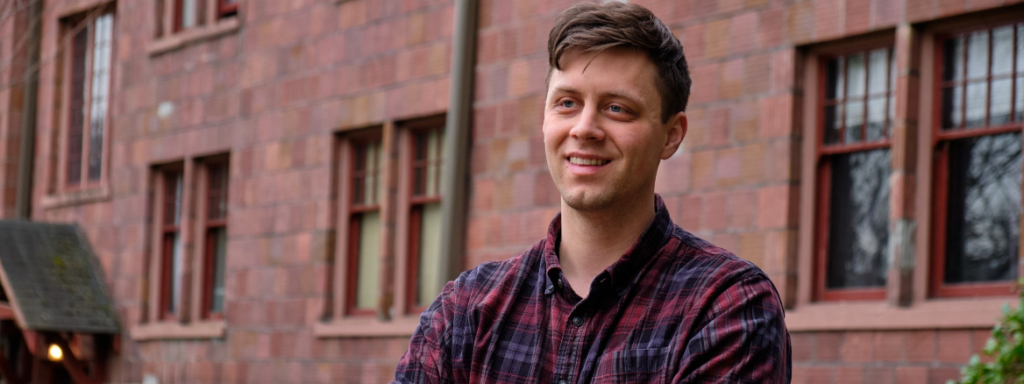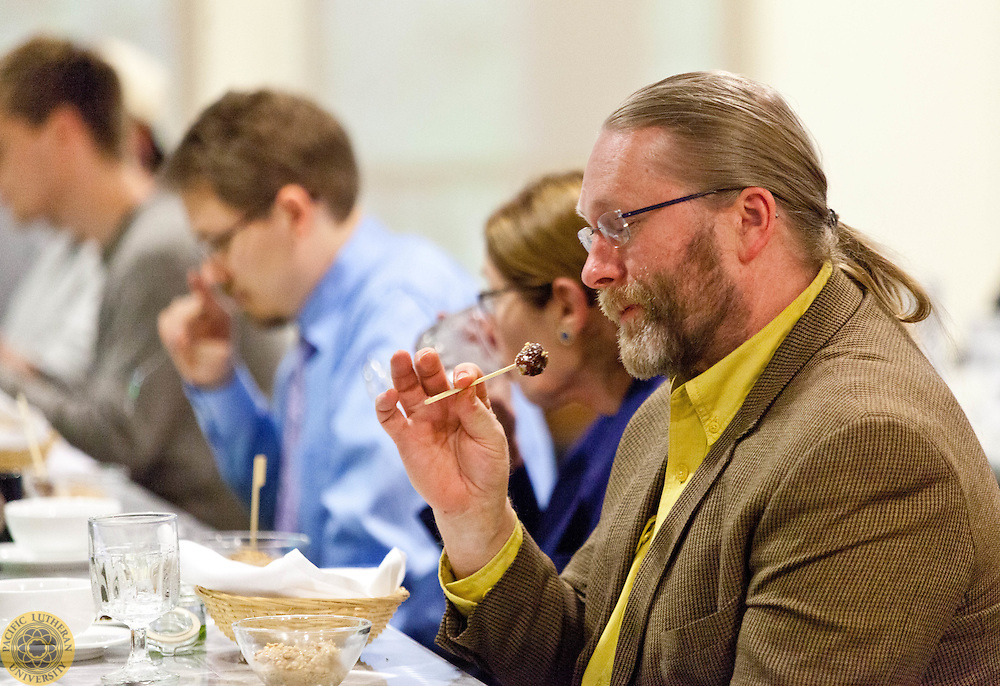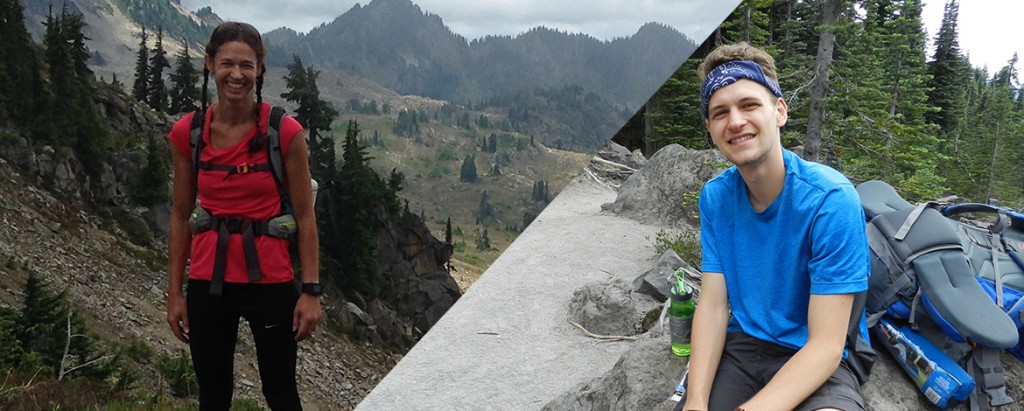Page 78 • (1,154 results in 0.028 seconds)
-

“Our place in this world is to be of service to other people,” notes Eric Watness, a descendant of PLU’s founder and first President, Rev. Bjug Harstad. Bjug is also the namesake of Bjug Day , PLU’s day of giving, which started in 2013 and…
his family reconnect with their Norwegian heritage, which they inherited from Bjug Harstad. His daughters, Kjirsten and Ann, have built close connections with relatives in Norway and volunteer their time to help preserve their cultural heritage. It’s another way that the family gives back. The tradition of philanthropy is a thread that has endured through generations of Bjug Harstad’s lineage. Through Bjug Day and with the participation of the broader Lute community, this spirit of giving
-

TACOMA, WASH. (March. 2, 2020) — Jared Wright ‘14, political science and global studies double major, arrived at PLU eager to engage in community work and excited to study social justice. He didn’t have specific plans and didn’t know what it would all look like,…
of Discourse” in a panel moderated by University Pastor Jen Rude on Thursday, March 5 at 3:45 in the Scandinavian Cultural Center. What is Lutheran Community Services Northwest and can you share a bit about your program, in particular? Lutheran Community Services Northwest is a regional organization that serves vulnerable children, families, refugees and others throughout Washington, Oregon and Idaho. My program, in particular, is working on refugee resettlement. We help refugees secure housing
-

A happy accident landed Sandra Estrada ’20 in her “Global Human Rights” course. It resulted in research on child mortality in sub-Saharan Africa, which she presented at an academic symposium at
different,” Hames said. “You would have different assumptions about them based on what they drink.” Hames, associate professor of history, is conducting research on alcohol and the creation of identity in a cultural context. She initially completed a dissertation on women in Bolivia who own neighborhood taverns. That was followed by a textbook on the world history of alcohol. A popular press in London reached out to her and urged her to write a popular version. So, she is spending her sabbatical this
-

Jacob Taylor-Mosquera ’09 was 18 when he returned to Colombia. Although he considered it a homecoming, it took several more visits for him to truly feel at home.
a big focus on political science,” he said. “I loved everything about it.” Palerm clearly recalls Taylor-Mosquera’s presence in that class and others. “He contributed insightfully to class discussions in the classroom,” she said, “gently pushing his peers to engage difficult conversations about race and class in (Latin American cultures).” At PLU, Taylor-Mosquera’s passion for travel and cultural inquisition grew. He received a Wang Center grant to conduct research in Ecuador and spent his final
-

Sirine Fodstad spent nearly two decades traveling the world for work. But her story starts and ends in Norway, where she is a global human resources director for the Norwegian Sovereign Wealth Fund.
,” she said, adding that Norwegians naturally gravitate toward the university’s mission. She said the emphasis on a well-rounded education, tolerance, and embracing cultural diversity are some of the many intersections between PLU and Norwegian values. “PLU core values are very linked to the Norwegian belief system.” However, she stressed, Norwegians appreciate the focus on community above all else. “There’s a lot of great connection between PLU and Scandinavia,” she said. “I hope that really
-

Stephen Kitajo serves on the board for the Puyallup Valley Chapter of the Japanese American Citizens League.
poignant. For him, the impact of setting foot on the camp’s grounds is most powerful. “We can hold these lectures and screen films anywhere,” Kitajo said, “but to do that in combination with visiting the site and really providing context to what we’re learning about is a crucial piece and a big part of why we do the pilgrimage.” Kitajo became involved with the Minidoka Pilgrimage in 2012 as an intern at the Japanese Cultural and Community Center of Washington. He participated in his first pilgrimage
-
Speaker: Tamara R. Williams, Professor of Hispanic Studies Executive Director, Wang Center for Global and Community Engaged Education Location: Zoom
Peak Solutions, Muckleshoot – BSN, MA Introduction by Suzanne Crawford O’Brien, Professor of Religion and Interim Dean of Interdisciplinary Studies Location: Zoom 7:00 - 8:30 p.m. | Healing as Transformative Justice Speaker: Gilda Sheppard, Professor of Sociology, Cultural and Media Studies, The Evergreen State College Introduced by Jenny James, Associate Professor of English and Chair of Gender, Sexuality and Race Studies Location: Zoom PLU only community screening of Since I Been Down is
-
There are many opportunities to live, work, study, teach and volunteer abroad after graduating. Alumni and Student Connections also offers advising and a variety of resources to help you find the
countries, the Fulbright U.S. Student Program provides grants for graduates to work overseas as English language teaching assistants. This program facilitates direct cultural interaction and mutual understanding on an individual basis for Fulbright awardees, who meet, work, live with, and learn from the people of the host country, through sharing daily experiences. The host countries determine the number and criteria for candidates. Award/Stipend/Benefits: round-trip transportation to the host country
-

As you know, PLU went through a difficult process of prioritization this year, responding to lower enrollments and seeking to proactively budget for a sustainable future rather than wait until we reached emergency conditions. This led to hard conversations and hard choices, ultimately made by…
professions. A 2016 Classics major who is currently pursuing a Ph.D. in engineering wrote this about his degree: My Classics degree, to me, exemplifies every virtue and value of a liberal arts education, and also everything unique and exceptional about PLU as an institution. . . . By studying holistically the culture, life, and beliefs of another society, I could step outside, if only partially and momentarily, of my own cultural biases, customs, and predispositions; I think that is the epitome of what
-

In her free time, professor of religion Dr. Bridgette O’Brien likes to participate in ultrarunning—completing runs longer than a marathon (26.2 miles). While Professor O’Brien is out on the trail, she often takes that time to think about her connection to the outdoors, a connection…
you’re are less civilized, and more in touch with the kinds of primal instincts one has to use to survive. I think in this over-civilized, over-developed world, some feel there is a cultural, existential crisis going on. Ultrarunning in a natural setting is a way for people to connect in a meaningful way to not only each other, but to their primal past. It’s a way to reconnect with nature.” In her research, Dr. O’Brien is focusing on a group of five elite women from the ultrarunning community
Do you have any feedback for us? If so, feel free to use our Feedback Form.


